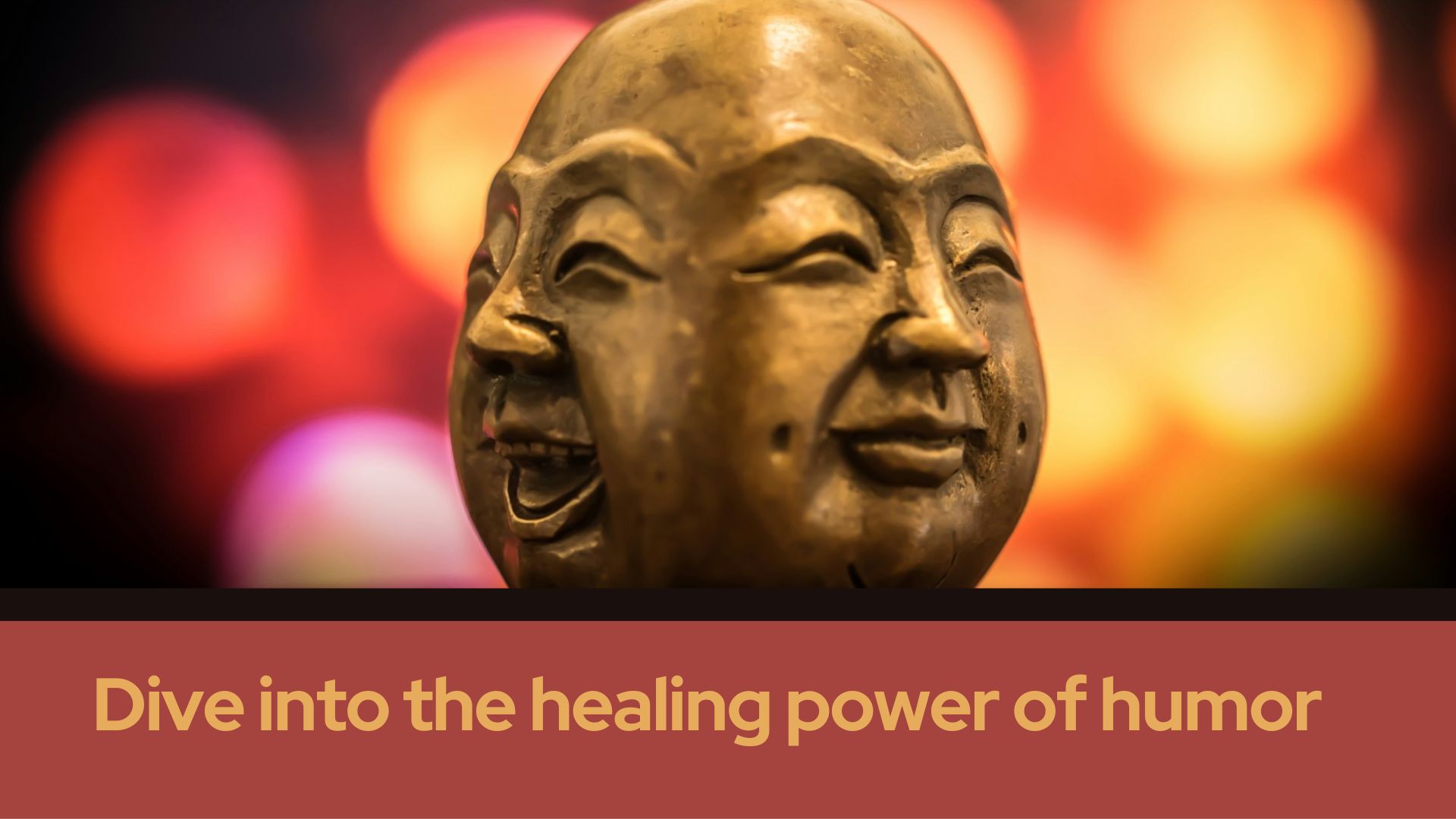Introduction
Humor is a global language that transcends borders and cultures, appearing in various forms of expression such as one’s smile or an uproarious laugh. It’s an intrinsic part of our existence, often emerging spontaneously in our daily interactions and serving as a social glue to connect us. In addition to its social appeal, humor has been promoted as a therapeutic agent, particularly in the field of mental health.
The adage “laughter is the best medicine” is not just a saying; it encapsulates the age-old wisdom that joy and mirth can have healing properties. The heart of that wisdom is explored in this article, which examines the complex relationship between humor and mental health. We aim to uncover whether laughter truly holds the key to not just a momentary escape from life’s challenges but also a long-term strategy for psychological resilience.
We’ll take a look at the science behind laughter, its physiology, and the psychological benefits that humor has to offer. The role of humor in therapy and counseling and its effects on social relationships as a coping mechanism during periods of stress or adversity will also be considered.
We’d like readers to reflect on their own experiences with humor as we go further into this exploration. In difficult situations, how many times do we seek amusement? Can a good laugh with your friends make you feel less burdened? In addition, to improve our mental health, can humor be part of our lives on a subconscious basis?
In this article, we’re trying to address these questions and reveal the possibilities of humor that can brighten our days as well as enhance our resilience. Let’s start this journey with an open mind and, perhaps, a light heart to see if laughter is the best cure for our minds.
The Science of Laughter
Ph$ysiological Process and Effects
Laughter triggers a cascade of neural activity, beginning with the cerebral cortex, the brain’s command center for higher-order functions. The limbic system, in particular the amygdala and hippocampus, which is responsible for processing emotions and memories is then involved. In particular, the part of the brain that controls involuntary actions such as breathing plays a crucial role.
When we laugh, our body undergoes several changes:
- Respiratory System: Our breathing pattern becomes irregular, leading to increased oxygen intake and stimulation of the heart and lungs.
- Muscular System: Various muscle groups are activated, including some that don’t often get used, providing a form of exercise.
- Endocrine System: Laughter reduces the level of stress hormones like cortisol and adrenaline while enhancing the release of endorphins, the body’s natural feel-good chemicals.
Laughter as a Stress-Reliever
The act of laughing can act as a potent stress reliever. It does so by:
- Reducing Stress Hormones: Lowering the body’s stress hormone levels, which in turn can help reduce stress-related symptoms.
- Easing Tension: Physically relaxing the muscles, which can relieve some of the physical symptoms of stress.
- Enhancing Resilience: Building resilience by providing a psychological buffer against life’s challenges.
Impact on Physical Health
Laughter’s benefits extend beyond mental well-being to physical health:
- Heart Health: Improving blood flow and the function of blood vessels, which can help protect against heart attacks and other cardiovascular problems.
- Pain Reduction: Acting as a natural painkiller by causing the body to produce its pain relievers, the endorphins.
- Immune System Boost: Enhancing the immune system by increasing the production of antibodies and activating protective cells, such as T-cells and natural killer cells.
Laughter and Mental Health
The connection between laughter and mental health is profound. Laughter can:
-
- Improve Mood: Instantly elevate mood by releasing dopamine, a neurotransmitter associated with feelings of pleasure and reward.
- Enhance Cognitive Functions: Improve memory, creativity, and problem-solving skills by increasing the connectivity between different regions of the brain.
- Foster Social Connections: Strengthen relationships and promote group bonding, which is essential for mental health.
Humor in Mental Health Care
Therapeutic Humor: An Overview
As an activity to promote health and well-being through playful discovery, expression, or appreciation of life’s absurdities or incongruities, therapy humor is a term used. To aid healing or coping, it can be beneficial for the patient’s health or complement its treatment. Humor in the clinical environment is not about telling jokes, it’s about cultivating a sense of humor that can ease tension and foster positive relationships between patients and healthcare providers.
Benefits of Humor in Therapy
The benefits of integrating humor into therapy are well-documented:
- Stress Hormone Reduction: Humor and laughter have been shown to decrease levels of stress hormones, which can help alleviate anxiety and stress.
- Pain Management: Laughter can decrease pain perception, likely due to an endorphin-mediated opiate effect, which is beneficial in managing chronic pain conditions.
- Immune System Enhancement: Engaging in humor can strengthen the immune system, increasing the production of antibodies and activating protective cells.
Building Therapist-Client Relationships
A well-timed and appropriate use of humor can:
- Enhance Rapport: Create a more relaxed atmosphere, making it easier for clients to open up and share their experiences.
- Facilitate Communication: Serve as a non-threatening way to discuss sensitive topics and break down barriers.
- Increase Engagement: Encourage active participation in the therapeutic process, making sessions more enjoyable and less daunting.
Coping with Stress and Adversity
Humor is a powerful antidote to stress, which provides a mental break from life’s troubles. It helps shift our perspective, allowing us to see situations from a lighter, more manageable angle. To break the cycle of negative thinking, to provide a momentary escape, and to create a more resilient mindset, it is possible to embrace humor in the face of stress.
Psychological Benefits of Humor
Mood Enhancement
The ability to raise our spirits is one of the most immediate effects of humor. Laughter activates the release of serotonin and dopamine, neurotransmitters associated with feelings of happiness or pleasure. Our mood can be quickly improved by this biochemical reaction, making us feel more positive and happy.
Stress Reduction
There is no room for the experience of humor or distressed emotions in a similar psychological space. When we engage in laughter, it interrupts the cycle of stress and anxiety, providing a momentary reprieve that can have lasting effects. Humor helps us restore a sense of calm and control over our emotional state, if we reduce the symptoms of stress.
Cognitive Benefits
There’s also a benefit in humor for brain function. By enhancing creativity and problem-solving skills, it can boost brain power. Different areas of the brain are stimulated by the mental flexibility necessary to understand and create humor, leading to improved cognitive function as well as enhanced ability to cope with complex social situations.
Social Connection
A bond of mutual laughter is strong in society. Humor is a key to our social well-being because it makes us feel connected and collegial with each other. It’s able to break the barriers, facilitate communication, and create a sense of belonging and acceptance in your group.
Resilience and Coping
Humor is an efficient mechanism of coping. It’s a way of looking at our problems from a different angle, and it often makes them seem easier to deal with. We can create a psychological distance from our challenges so that we are better able to deal with them and build resilience by recognizing humor in difficult situations.
Therapeutic Effects
Incorporating humor into mental health therapy can reduce symptoms of depression and anxiety, boost self-esteem, improve social skills and communication, and even help reduce the intensity of mental health conditions. This is a flexible tool that can be used by therapists to make their clients more engaged and comfortable in therapy.
Case Studies and Anecdotes
The power of humor in mental health is not just a theoretical concept; it is vividly illustrated through real-life case studies and personal anecdotes. These stories provide tangible evidence of how humor can be a transformative force in the lives of individuals dealing with mental health challenges.
Arthur Asa Berger’s Insight on Humor
Arthur Asa Berger, Professor Emeritus at San Francisco State University, offers a compelling case study on the therapeutic benefits of humor. With a career spanning over 60 years, Berger has applied humor in teaching, writing, and drawing, emphasizing its value not just in joke-telling but in fostering enjoyable conversations and witty exchanges. His approach highlights the importance of humor in everyday interactions and its potential to enhance mental well-being.
Mary Kay Morrison’s Humor Development
Another notable case study involves Mary Kay Morrison, an educator and past president of the Association for Applied and Therapeutic Humor. Morrison’s work explores the stages of humor development and its significance in cognitive development. Her recommendations for humor practice emphasize its role in preventing mental health challenges and as a treatment for anxiety and depression.
Anecdotes from Therapy Sessions
Therapists often share anecdotes about the use of humor in their sessions, demonstrating its effectiveness in building rapport, easing tension, and facilitating breakthroughs. For instance, a therapist might recount how a well-placed humorous remark helped a client open up about a difficult subject, or how a shared laugh created a moment of connection and understanding.
Humor in Overcoming Personal Struggles
Personal anecdotes about humor’s role in overcoming struggles can be particularly inspiring. These stories often involve individuals who have used humor to cope with stress, grief, or illness, finding laughter to be a source of strength and resilience. Such anecdotes serve as a reminder of the human capacity to find light even in dark times.
Conclusion
Lastly, the psychological benefits of humor are profound and wide-ranging. Humor has the power to transform our mental health and enrich our lives, whether it helps us relax, reduce stress, improve cognitive abilities, connect with others, help us cope, or serve as a therapeutic instrument. We’re opening up a world of psychological benefits that can make life much more pleasant as we continue to discover and love the power of laughter.
Check out more articles!








